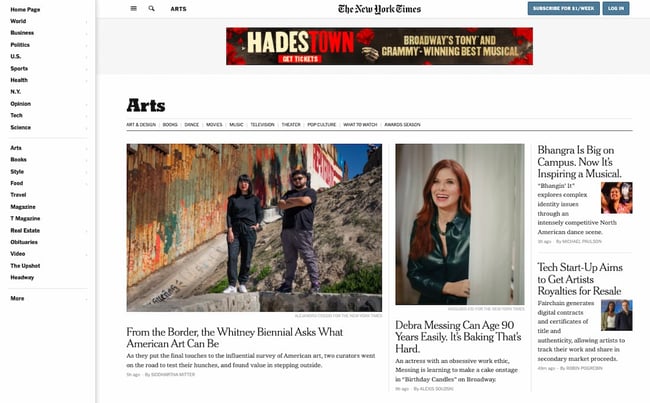News Websites - An Overview
News Websites - An Overview
Blog Article
The 5-Second Trick For News Websites
Table of ContentsThe 20-Second Trick For News WebsitesAn Unbiased View of News WebsitesThe Ultimate Guide To News WebsitesRumored Buzz on News WebsitesThe Facts About News Websites Uncovered
It was down in the UK and Brazil yet up a few other nations, such as Greece, Bulgaria, and Poland (News Websites). This year, for the initial time, we asked regarding the different methods that people avoid the information and discovered that around half of avoiders (53%) were attempting to do so in a broad-brush or periodic means for instance, by shutting off the radio when the news began, or by scrolling past the news in social media sitesYou claimed that you try to proactively prevent news.

I'm most likely selecting to find out more light-hearted stories than I made use of to right now. M, 51, UK Turning my back on news is the only means I feel I can cope in some cases. I need to purposely make the effort to transform away for the sake of my very own psychological wellness.
Little Known Facts About News Websites.
Discerning evasion of Ukraine news was greatest in a number of the nations closest to the conflict, strengthening findings from our added study in 2014, not long after the battle had actually started. Our data may not suggest an absence of passion in Ukraine from nearby countries however rather a wish to handle time or shield psychological health and wellness from the really genuine scaries of battle.
Contrasting Finland with a politically polarised nation such as the USA (see following chart) that is less impacted by the war, we discover an extremely different pattern of topic evasion. In the USA, we discover that consumers are most likely to avoid topics such as nationwide politics and social justice, where disputes over concerns such as gender, sexuality, and race have become very politicised.
American national politics are rather toxic these days. I locate in some cases that I need to detach from tales that just make me upset. F, 61, United States For some people, bitter and disruptive political arguments are a reason to shut off news completely, yet for some political upholders, evasion is usually concerning shutting out point of views you don't want to listen to.

What Does News Websites Do?
Some are looking to make information much more available for hard-to-reach teams, broadening the information agenda, commissioning more motivating or positive information, or accepting constructive or options linked here journalism that offer people a feeling of hope or individual firm. In our study this year, we asked participants regarding their rate of interest in these different strategies.
This clarifies why tales like Ukraine or national politics perform well with news regulars yet can at the exact same time transform less interested customers away (News Websites). Careful avoiders are much less interested in all kinds of news than non-avoiders however in loved one terms they do seem to be much more interested in positive or solutions-based information

News Websites Fundamentals Explained
2023). This may be real in the minute, but over time it appears official site to be leaving lots of people vacant and less completely satisfied, which might be threatening our link with and count on the news. Website Throughout markets, overall trust fund in information (40%) and count on the sources people utilize themselves (46%) are down by an additionally 2 portion factors this year.
Via the rear-view mirror, the COVID-19 trust bump is clearly noticeable in the complying with graph, though the instructions of traveling later on has been mixed. Sometimes (e.g. Finland), the depend on rise has actually been preserved, while in others the upturn looks even more like a blip in a story of ongoing long-term decline.
Several of the greatest reported degrees of media objection are found in countries with highest possible levels of distrust, such as Greece, the Philippines, the United States, France, and the UK. The most affordable degrees of media objection frequent those with greater degrees of trust, such as Finland, Norway, Denmark, and Japan.
A Biased View of News Websites
This year we asked participants about their preferences for message, sound and video clip when taking in news online. Generally, we discover that the bulk still prefer to check out the information (57%), instead of watch (30%) or pay attention to it (13%), however more youthful people (under-35s) are more probable to pay attention (17%) than older teams.
Behind the standards we find significant and unexpected country distinctions. In markets with a solid analysis practice, such as Finland and the United Kingdom, around eight in 10 still like to review on the internet information, yet in India and Thailand, around four in ten (40%) claim they choose to see information online, and in the Philippines that percentage is over fifty percent (52%).
Report this page